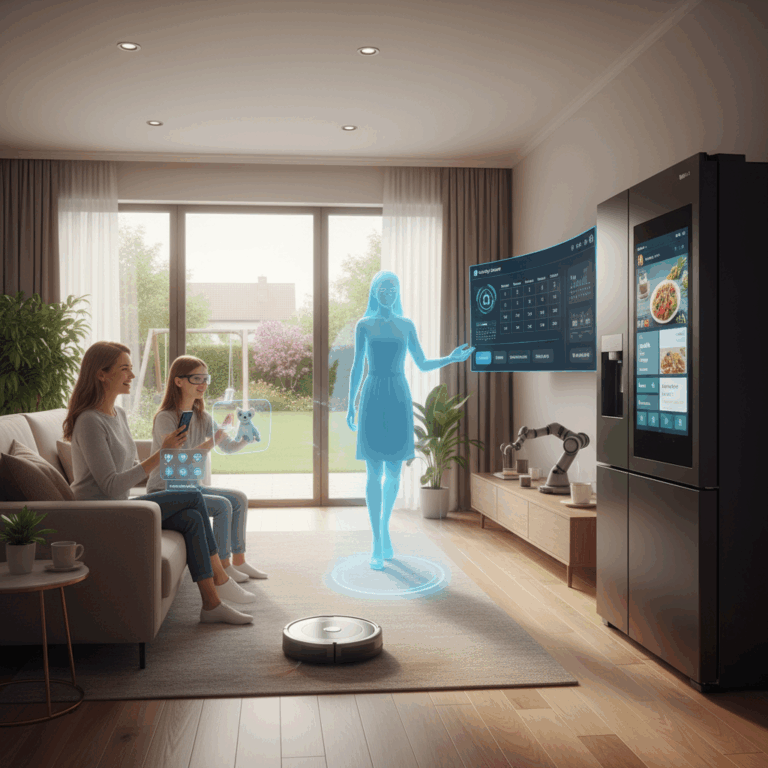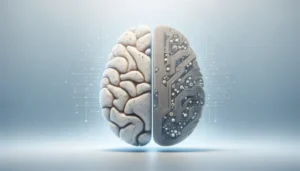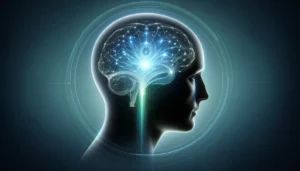AI Integration in Daily Morning Routines
AI seamlessly integrates into our mornings, transforming routines with smart technology. From waking up to preparing for the day, AI provides personalized support and convenience.
By learning user habits, AI enhances efficiency in tasks like scheduling, climate control, and entertainment, creating a more connected and effortless start to the day.
This quiet assistance helps millions worldwide, blending into daily habits without being intrusive, yet making mornings more productive and enjoyable.
AI-Powered Digital Assistants and Smart Home Devices
Digital assistants like Alexa and Google Assistant simplify morning tasks by managing alarms, weather updates, and reminders. Their adaptive learning personalizes user experiences effectively.
Smart home devices adjust lighting and temperature based on routine patterns, ensuring comfort and energy efficiency without manual intervention each morning.
These AI-driven tools work silently, helping people save time while providing a tailored and responsive environment to begin the day with ease.
Personalized Content Curation Before Starting the Day
AI curates news feeds and music playlists based on past preferences, offering content that matches individual tastes even before breakfast.
This personalization ensures users receive relevant and engaging information, enhancing mental readiness and mood for the day ahead.
By analyzing behavior, AI keeps evolving content choices, creating a dynamic and enjoyable morning routine customized to each user’s unique interests.
AI Enhancements Throughout the Day
As the day progresses, AI technologies enhance security, productivity, and health monitoring seamlessly. These advancements make everyday life safer and more efficient.
From protecting homes with intelligent surveillance to boosting workplace and educational efficiency, AI’s impact is both subtle and powerful throughout daily activities.
Healthcare also benefits significantly from AI, with tools continuously monitoring wellness and supporting timely diagnosis, improving overall quality of life.
Security and Convenience with Facial Recognition and AI Cameras
Facial recognition technology offers both secure access and convenience by unlocking devices and verifying identities quickly and accurately.
AI cameras enhance safety by monitoring homes and public spaces, detecting unusual activities, and alerting users promptly to potential threats.
These systems integrate effortlessly into daily routines, providing peace of mind while reducing the need for manual security management.
Workplace and Educational AI Applications
AI assists in the workplace by automating routine tasks such as email generation and document organization, freeing up time for creative work.
In education, adaptive learning platforms customize study plans and materials based on students’ progress, enhancing engagement and comprehension.
Together, AI tools foster greater productivity and personalized experiences, making work and study more effective and tailored to individual needs.
Healthcare Monitoring and Diagnostic Tools
AI-powered healthcare tools monitor vital signs continuously, alerting users and professionals to any concerning changes in real time.
Diagnostic systems use AI to analyze medical data quickly, improving early detection and treatment accuracy for various conditions.
Innovations Shaping Health
Wearable AI devices empower users to track fitness and wellness actively, encouraging healthier lifestyles through personalized insights and recommendations.
AI Influence on Shopping, Entertainment, and Communication
AI has transformed shopping, entertainment, and communication by providing highly personalized experiences that adapt to individual preferences and behaviors.
It enhances user engagement by filtering content, tailoring recommendations, and streamlining interactions, making these daily activities more enjoyable and efficient.
Through subtle integration, AI creates a seamless flow in digital interactions, connecting people with products, media, and communication tools effortlessly.
Personalized Recommendations and Social Media Filtering
AI analyzes user behavior to suggest products, movies, music, and books aligned with personal tastes, improving decision-making and satisfaction.
Social media platforms use AI to filter content, prioritize relevant posts, and target ads, shaping the way users consume information daily.
This filtering helps reduce noise and enhances user experience but also raises awareness about algorithmic influence on viewpoints and preferences.
Customer Service Automation and Language Processing Tools
Chatbots powered by AI provide 24/7 customer support, quickly resolving queries and improving service efficiency without human delays.
Natural language processing tools assist in composing emails, translating languages, and refining writing, making communication faster and clearer.
These technologies reduce routine effort, allowing users to focus on meaningful conversations and creative tasks with less friction.
AI’s Role in Evening Activities and Future Considerations
In the evening, AI offers tools for relaxation and wellness, helping users unwind after a busy day. AI-driven apps tailor experiences for better sleep and stress relief.
These technologies analyze user habits and adjust environments to promote calmness, improving overall well-being as the day concludes.
At the same time, AI’s growing influence raises important questions about privacy, security, and ethics that must be carefully addressed moving forward.
Relaxation and Wellness Through AI-Driven Apps
AI-powered wellness apps provide personalized meditation, workout plans, and sleep aids, adapting to individual preferences for effective relaxation.
Smart devices can dim lights and play calming sounds automatically, creating an ideal atmosphere to help users decompress and prepare for rest.
Through constant learning, these apps offer increasingly accurate recommendations, supporting healthier lifestyles and improved mental health.
Privacy, Security, and Ethical Challenges of AI
The pervasive nature of AI introduces concerns about data privacy, as sensitive personal information is often collected and analyzed.
Security risks arise from potential misuse or hacking, demanding robust protections to safeguard users and their digital identities.
Ethical debates focus on transparency, bias in algorithms, and the balance between convenience and human autonomy in AI applications.







